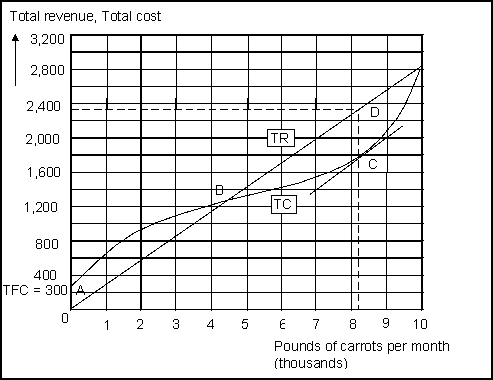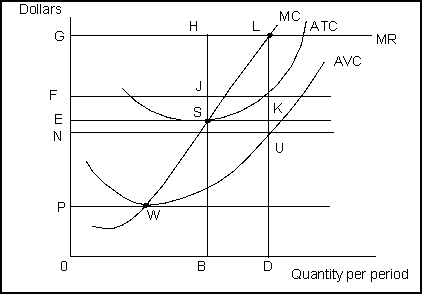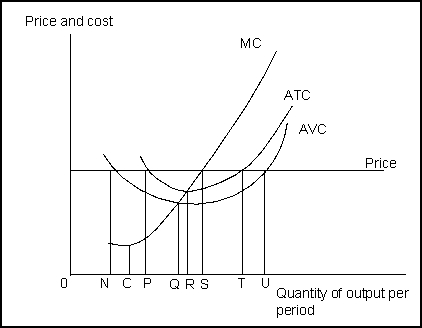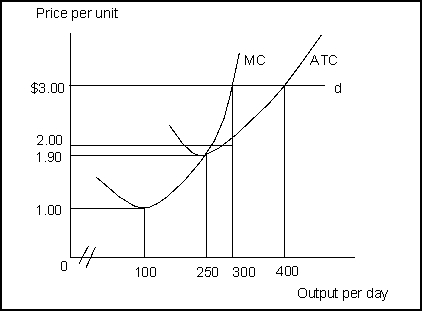Exam 9: The Nature and Creation of Money
Exam 1: Economics: the Study of Choice138 Questions
Exam 2: Confronting Scarcity: Choices in Production193 Questions
Exam 3: Demand and Supply243 Questions
Exam 4: Applications of Demand and Supply108 Questions
Exam 5: Macroeconomics: the Big Picture243 Questions
Exam 6: Measuring Total Output and Income228 Questions
Exam 7: Aggregate Demand and Aggregate Supply223 Questions
Exam 8: Economic Growth221 Questions
Exam 9: The Nature and Creation of Money267 Questions
Exam 10: Monopoly229 Questions
Exam 11: The World of Imperfect Competition227 Questions
Exam 12: Wages and Employment in Perfect Competition173 Questions
Exam 13: Interest Rates and the Markets for Capital and Natural Resources161 Questions
Exam 14: Imperfectly Competitive Markets for Factors of Production178 Questions
Exam 15: Public Finance and Public Choice179 Questions
Exam 16: Inflation and Unemployment132 Questions
Exam 17: International Trade179 Questions
Exam 18: The Economics of the Environment144 Questions
Exam 19: Inequality, Poverty, and Discrimination134 Questions
Exam 20: Macroeconomics: the Big Picture104 Questions
Exam 21: Measuring Total Income and Output134 Questions
Exam 22: Aggregate Demand and Aggregate Supply120 Questions
Exam 23: Economic Growth124 Questions
Exam 24: The Nature and Creation of Money183 Questions
Exam 25: Financial Markets and the Economy158 Questions
Exam 26: Monetary Policy and the Fed175 Questions
Exam 27: Government and Fiscal Policy177 Questions
Exam 28: Consumption and the Aggregate Expenditures Model199 Questions
Exam 29: Investment and Economic Activity115 Questions
Exam 30: Net Exports and International Finance202 Questions
Exam 31: Macro Inflation and Unemployment135 Questions
Exam 32: Macro a Brief History of Macroeconomic Thought and Policy120 Questions
Exam 33: Economic Development107 Questions
Exam 34: Socialist Economies in Transition129 Questions
Select questions type
The marginal revenue received by a firm in a perfectly competitive market:
(Multiple Choice)
4.9/5  (35)
(35)
Use the following to answer questions  -(Exhibit: Total Revenue, Total Costs, and Economic Profit)Economic profit will be the greatest when approximately _______ pounds are sold.
-(Exhibit: Total Revenue, Total Costs, and Economic Profit)Economic profit will be the greatest when approximately _______ pounds are sold.
(Multiple Choice)
4.8/5  (30)
(30)
A characteristic of perfect competition is that buyers know the prices that sellers are asking but sellers do not necessarily know the prices that buyers are offering.
(True/False)
4.8/5  (38)
(38)
Which of the following is not an assumption economists make when using the model of perfect competition?
(Multiple Choice)
4.8/5  (32)
(32)
In the short run, if P > ATC, a perfectly competitive firm:
(Multiple Choice)
4.8/5  (33)
(33)
Use the following to answer questions 129-135:
 -(Exhibit: A Perfectly Competitive Firm in the Short Run)The firm will shut down in the short run if the price falls below:
-(Exhibit: A Perfectly Competitive Firm in the Short Run)The firm will shut down in the short run if the price falls below:
(Multiple Choice)
4.8/5  (34)
(34)
In the short run, a perfectly competitive firm does not produce output and earns a negative economic profit if:
(Multiple Choice)
4.8/5  (38)
(38)
Perfect competition is a model of the market that assumes a large number of buyers and sellers engaged in the purchase and sale of identical goods.
(True/False)
4.9/5  (33)
(33)
If a perfectly competitive firm is producing a quantity that generates MC < MR, then profit:
(Multiple Choice)
4.9/5  (29)
(29)
Use the following to answer questions 129-135:
 -A perfectly competitive firm will earn a profit and will continue producing the profit-maximizing quantity of output in the short run if price is:
-A perfectly competitive firm will earn a profit and will continue producing the profit-maximizing quantity of output in the short run if price is:
(Multiple Choice)
4.8/5  (33)
(33)
Suppose that pasta is produced under conditions of perfect competition and that the constant-cost industry is initially in long-run equilibrium.Now suppose there is an increase in the price of wheat, which is a key ingredient in producing pasta.Further assume that the price elasticity of demand for pasta is -1.8.After all long-run adjustments have occurred, we would expect total consumer spending on pasta to have:
(Multiple Choice)
4.7/5  (33)
(33)
An increase in demand in a perfectly competitive market will cause a permanent increase in economic profit.
(True/False)
4.9/5  (36)
(36)
Use the following to answer questions 142-145:  -(Exhibit: Short-Run Costs)At the given price, the most profitable level of output occurs at quantity:
-(Exhibit: Short-Run Costs)At the given price, the most profitable level of output occurs at quantity:
(Multiple Choice)
4.8/5  (45)
(45)
If price is greater than average variable cost and less than average total cost at the profit-maximizing quantity of output in the short run, a perfectly competitive firm will:
(Multiple Choice)
4.8/5  (41)
(41)
Suppose that the market for candy canes operates under conditions of perfect competition, that it is initially in long-run equilibrium, and that the price of each candy cane is $0.10.Now suppose that the price of sugar rises, increasing the marginal and average total costs of producing candy canes by $0.05; there are no other changes in production costs.Based on the information given, we can conclude that in the long we will observe:
(Multiple Choice)
4.7/5  (32)
(32)
Economic profits in a system of perfectly competitive markets will be positive in all industries.
(True/False)
4.7/5  (35)
(35)
The model of perfect competition assumes that all goods produced in an industry are physically identical, even though they are viewed by the buyers as being different.
(True/False)
4.9/5  (24)
(24)
Use the following to answer questions Total Cost for a Perfectly Competitive Firm Quantity per Total period Cost 0 \ 10 1 \ 16 2 \ 20 3 \ 22 4 \ 24 5 \ 25 6 \ 27 7 \ 30 8 \ 34 9 \ 39 10 \ 45
-(Exhibit: Total Cost for a Perfectly Competitive Firm)If the market price is $3.50, the profit-maximizing quantity of output is _______ units.
(Multiple Choice)
4.8/5  (42)
(42)
A decrease in production costs for firms in a perfectly competitive market will cause a(n):
(Multiple Choice)
4.9/5  (35)
(35)
Use the following to answer questions 122-128:  -(Exhibit: Perfectly Competitive Firm)The exhibit shows a perfectly competitive firm that faces demand curve d, has the cost curves shown, and maximizes profit.The firm's total revenue per day is:
-(Exhibit: Perfectly Competitive Firm)The exhibit shows a perfectly competitive firm that faces demand curve d, has the cost curves shown, and maximizes profit.The firm's total revenue per day is:
(Multiple Choice)
4.8/5  (39)
(39)
Showing 181 - 200 of 267
Filters
- Essay(0)
- Multiple Choice(0)
- Short Answer(0)
- True False(0)
- Matching(0)